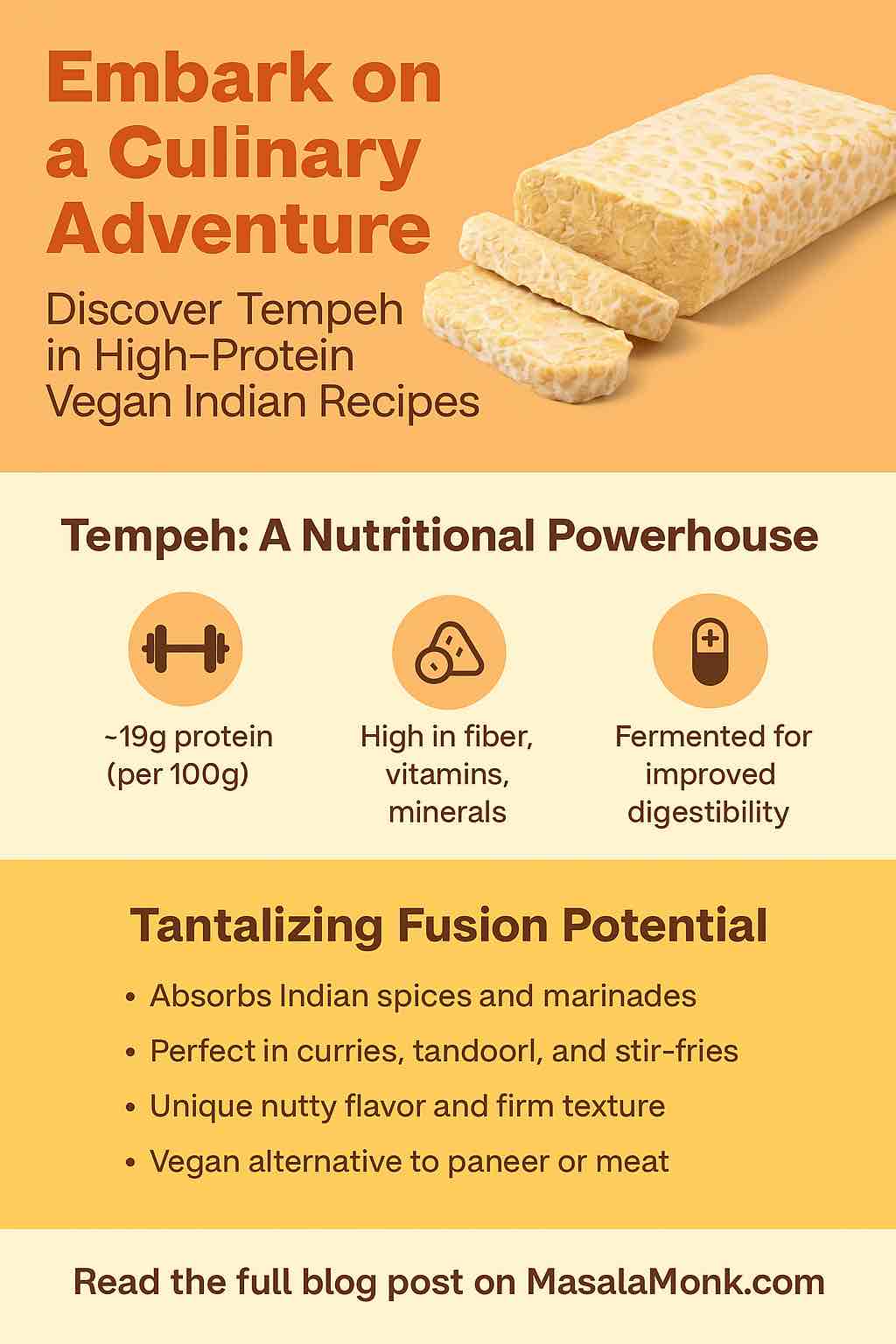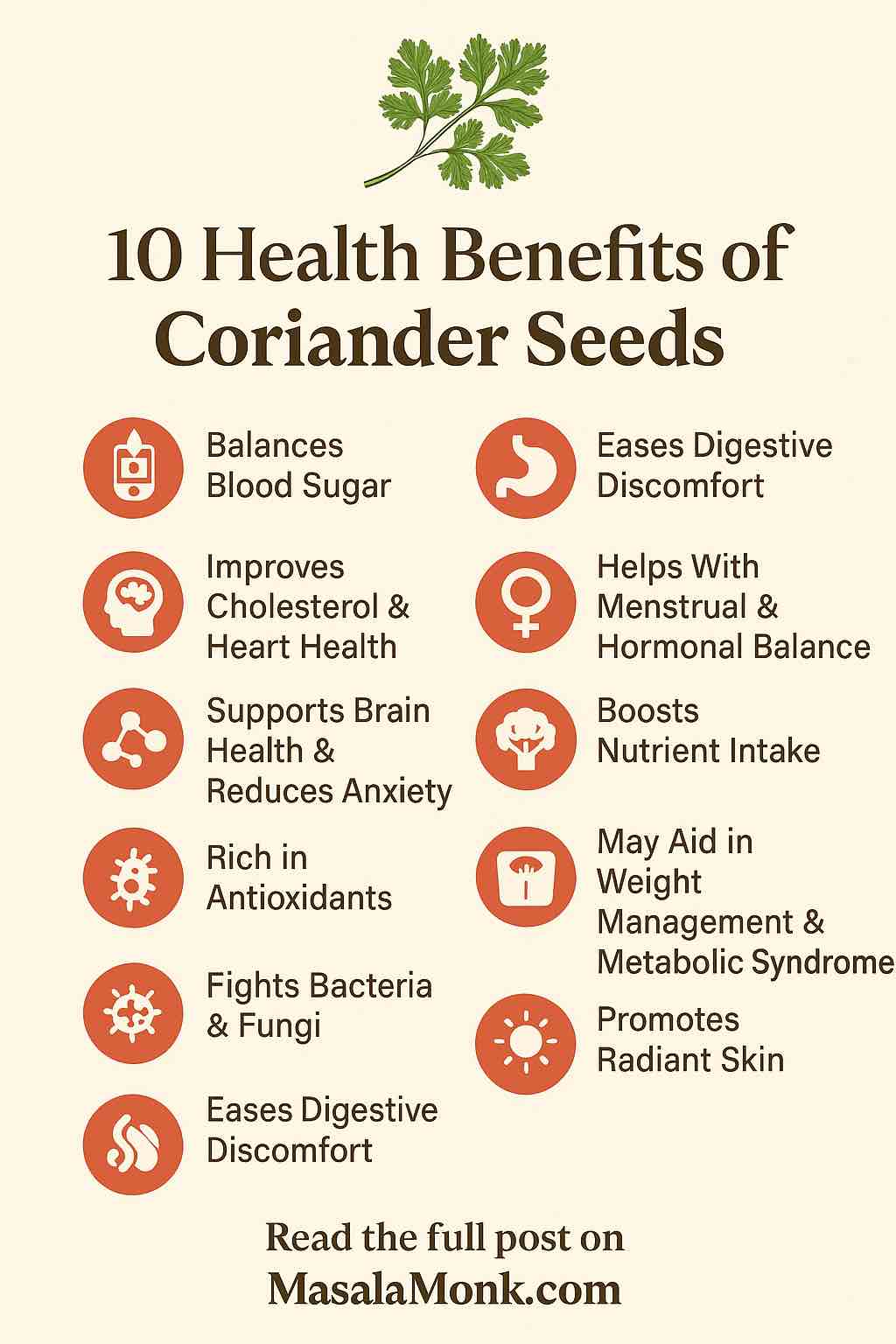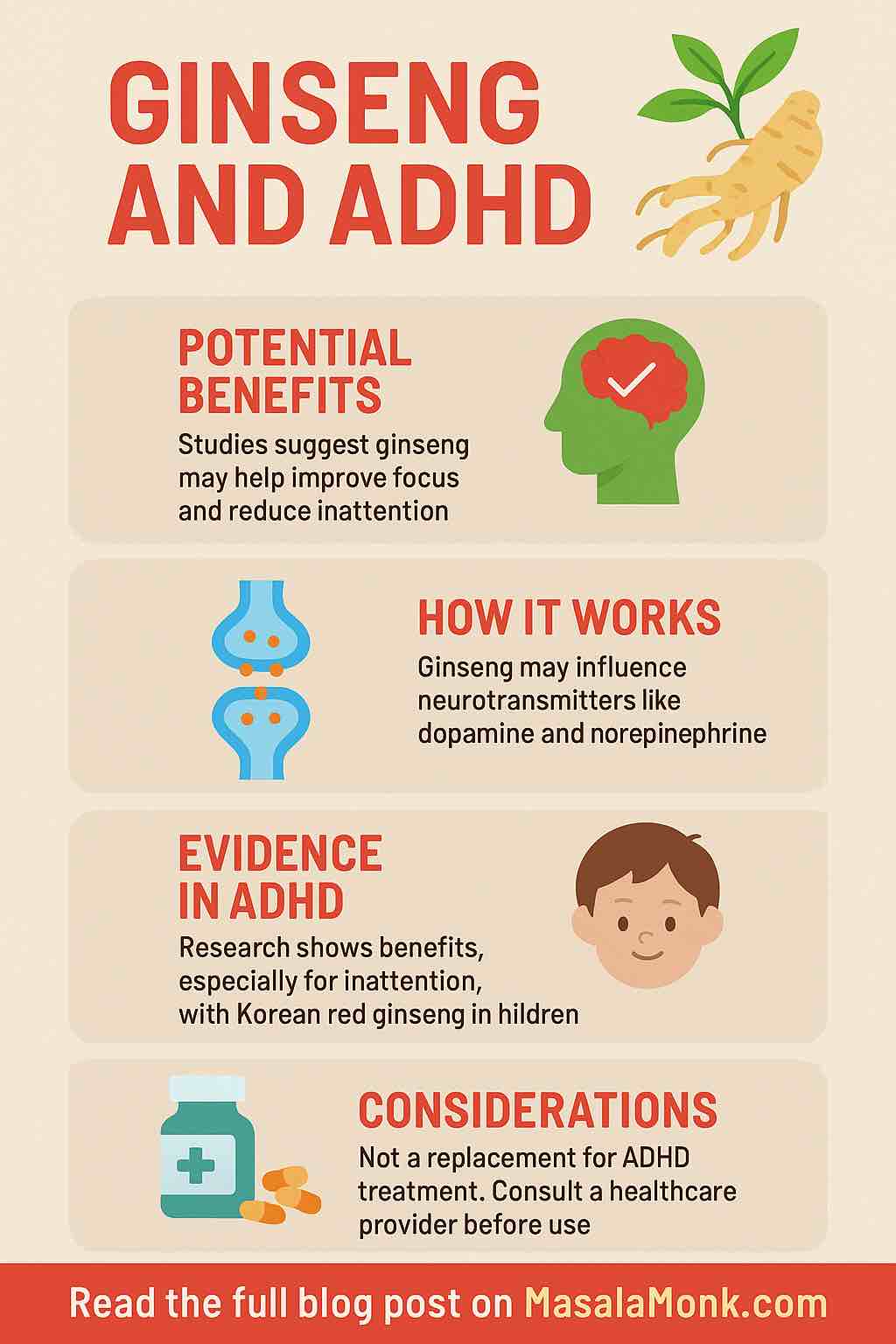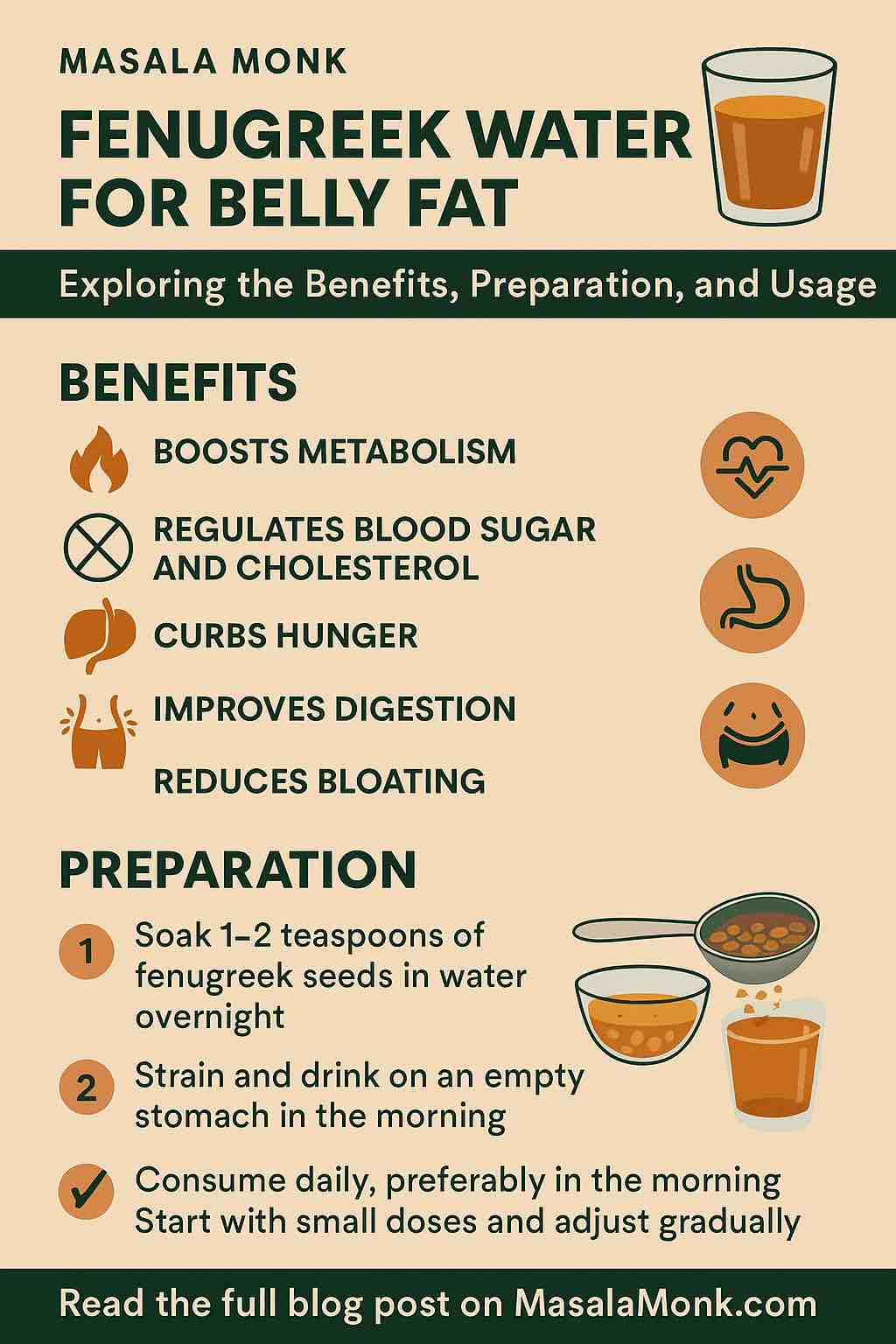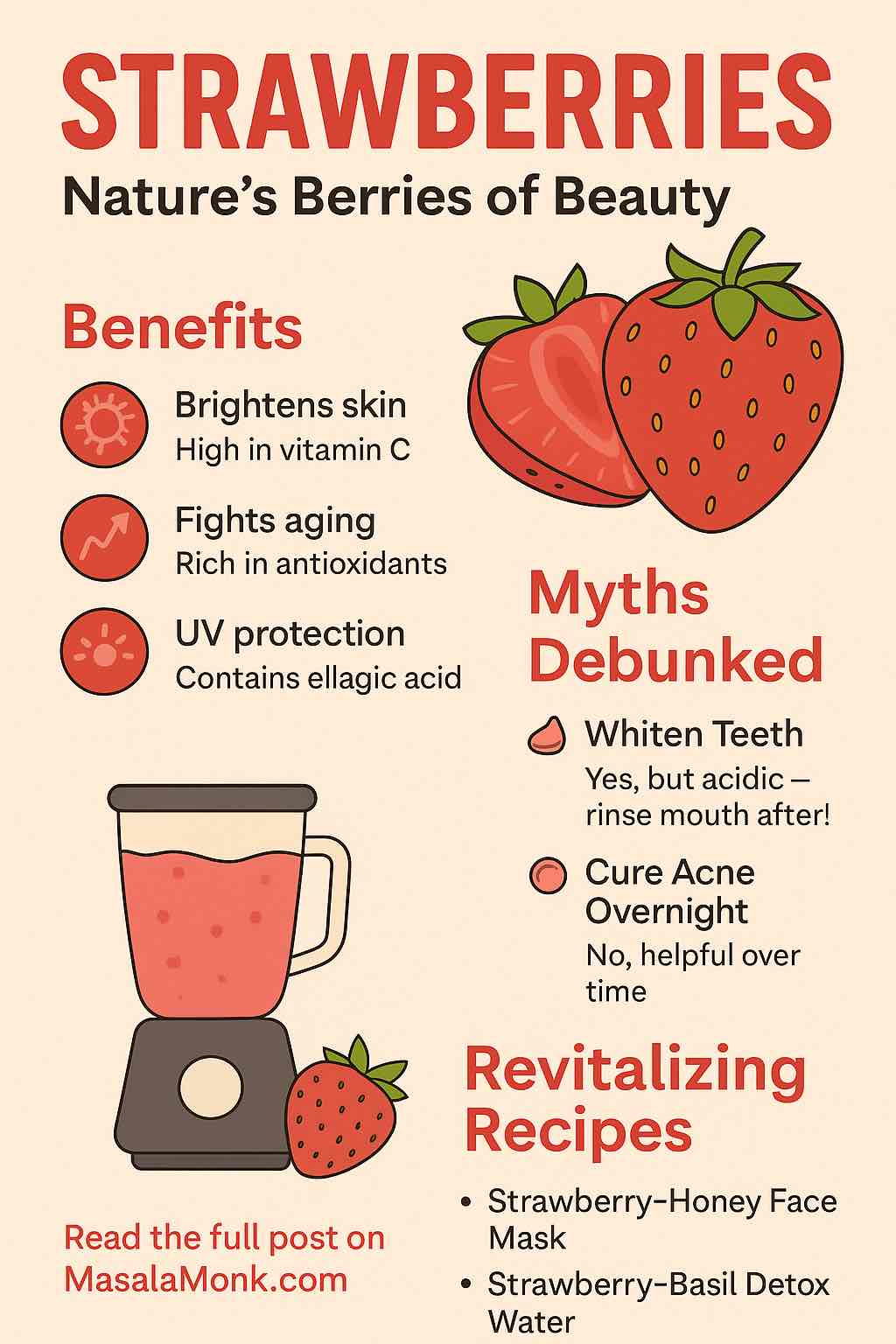
Strawberries, with their vibrant color, juicy sweetness, and distinct aroma, are among the most beloved fruits worldwide. But beyond their culinary charm lies a lesser-known truth: strawberries are deeply rooted in both historical wellness traditions and cutting-edge modern science. Known as nature’s beauty berries, they offer a wealth of benefits for skin, health, and overall vitality. This comprehensive post explores their scientifically backed advantages, clears up myths, and shares five transformative recipes for that fresh, radiant glow.
The Science-Backed Beauty of Strawberries
Nutritional Profile (per 100g):
- Calories: 32 kcal
- Water content: 91%
- Vitamin C: 59 mg (≈ 65% DV)
- Manganese: 0.386 mg
- Folate: 24 µg
- Fiber: 2 g
- Antioxidants: Ellagic acid, anthocyanins, pelargonidin, quercetin
Key Health & Beauty Benefits:
- Brightens Skin Tone: Rich in vitamin C and ellagic acid, strawberries reduce hyperpigmentation and promote even complexion.
- Fights Premature Aging: Antioxidants combat free radicals, slowing down wrinkle formation and skin damage.
- Natural Acne Fighter: Contains salicylic acid and AHAs that exfoliate skin and unclog pores.
- UV Protection: Ellagic acid provides mild defense against UV damage (though not a substitute for sunscreen).
- Supports Collagen Production: Vitamin C and polyphenols boost collagen synthesis, improving elasticity and skin texture.
- Improves Heart Health & Metabolism: Regular intake lowers LDL cholesterol and improves insulin sensitivity.
- Hydration & Detoxification: High water content aids hydration and gentle detox.
Common Myths About Strawberries
| Myth | Reality |
|---|---|
| Strawberries whiten teeth | Malic acid may remove some surface stains, but overuse can harm enamel. |
| A single mask can clear acne | Active ingredients help with consistent use, not instantly. |
| Only wild berries are beneficial | Cultivated berries have comparable nutritional value. |
| Diabetics should avoid them | Their low GI and fiber make them safe in moderation. |
| Allergies to strawberries are rare | Oral allergy syndrome and sensitivity are common. |
The Latest Research (2024-2025)
Recent studies have intensified the spotlight on strawberries:
- Topical extract use has shown improvement in skin tone, hydration, and brightness in controlled lab settings.
- Pelargonidin-rich skins deliver most of the fruit’s antioxidant load—whole-fruit consumption is recommended.
- Clinical trials suggest daily intake improves memory, blood pressure, and metabolic markers.
- New cultivars under development promise even more potent health benefits through targeted breeding.
5 Revitalizing Strawberry Recipes
Each recipe is designed to either nourish your skin from within or apply directly to promote a natural glow.
1. Strawberry-Honey Glow Mask (Topical)
- Ingredients: 3 ripe strawberries, 1 tsp raw honey, 1 tsp plain yogurt
- Method: Mash and mix; apply to face for 15 minutes. Rinse with lukewarm water.
- Benefits: Hydrates, exfoliates, soothes inflammation.
2. Collagen-Boost Strawberry Smoothie (Internal)
- Ingredients: 1 cup frozen strawberries, ½ banana, 1 scoop collagen powder, 1 tbsp chia seeds, 1 cup almond milk
- Method: Blend until smooth. Drink daily.
- Benefits: Supports collagen, stabilizes blood sugar, boosts hydration.
3. Green Tea & Strawberry Toner (Topical)
- Ingredients: 2 strawberries (juiced), ¼ cup cooled green tea, 1 tsp witch hazel
- Method: Mix, refrigerate, apply with cotton pad.
- Benefits: Tightens pores, reduces redness.
4. Strawberry-Basil Detox Water (Internal)
- Ingredients: 5 sliced strawberries, 4 basil leaves, 1L filtered water
- Method: Let sit for 2–4 hours. Sip throughout the day.
- Benefits: Boosts digestion, antioxidant-rich hydration.
5. Oatmeal Strawberry Scrub (Topical)
- Ingredients: 2 strawberries, 1 tbsp ground oats, 1 tsp coconut oil
- Method: Mix to paste, gently massage on damp skin. Rinse.
- Benefits: Gentle exfoliation, nourishes dry skin.
How to Choose and Store Strawberries
- Look for: Bright red color, firm flesh, intact green caps
- Avoid: Dull, mushy, or moldy berries
- Storage: Keep unwashed in fridge in breathable container; wash before use
- To freeze: Slice and freeze on a tray, then transfer to a bag
Final Thoughts
Strawberries offer a rare blend of taste, beauty, and wellness. With their proven benefits and versatile uses, they truly earn their reputation as nature’s beauty berries. Whether you’re sipping, applying, or simply savoring them, strawberries are a delightful and effective way to nourish your glow—inside and out.
Let these five recipes and insights become a part of your weekly routine for a fresh, revitalized you.
Have your own favorite way to use strawberries for skin or health? Share it in the comments!
🔍 Frequently Asked Questions (FAQs)
1. Can strawberries really improve skin tone and texture?
Yes. Strawberries are rich in vitamin C and ellagic acid, both of which help brighten skin, reduce hyperpigmentation, and improve collagen production for smoother, firmer skin.
2. How often can I use a strawberry face mask?
2–3 times per week is ideal for most skin types. If you have sensitive skin, start with once a week and monitor for any irritation.
3. Is it safe to apply strawberries directly to the skin?
Generally, yes—but always do a patch test first. Some people with berry allergies or sensitive skin may experience redness or irritation.
4. Are the benefits of eating strawberries the same as applying them topically?
No. Eating strawberries provides internal benefits like improved digestion, heart health, and skin radiance from within. Topical application mainly helps with exfoliation, hydration, and mild brightening.
5. Do frozen strawberries offer the same health benefits as fresh ones?
Yes. Frozen strawberries retain most nutrients and antioxidants. They’re excellent for smoothies and masks when fresh berries aren’t available.
6. Can diabetics safely eat strawberries?
Yes. Strawberries have a low glycemic index (about 40) and can be included in diabetic-friendly diets in moderation.
7. What time of day is best to eat strawberries for skin benefits?
Mornings are ideal—especially in smoothies or with breakfast—since vitamin C absorption helps support collagen production throughout the day.
8. Do strawberries help with acne?
They may help reduce mild acne thanks to salicylic acid and anti-inflammatory properties. However, for persistent acne, combine with a consistent skincare routine or consult a dermatologist.
9. Can I use store-bought strawberries with pesticides on my skin?
It’s best to use organic strawberries or wash conventional ones thoroughly in baking soda solution or vinegar rinse to remove residues before topical use.
10. How long does it take to see results from strawberry-based skin care or diet changes?
Visible improvements in skin tone and hydration may appear in 2–4 weeks with regular use or consumption. Internal benefits such as digestion and heart health may take longer.

